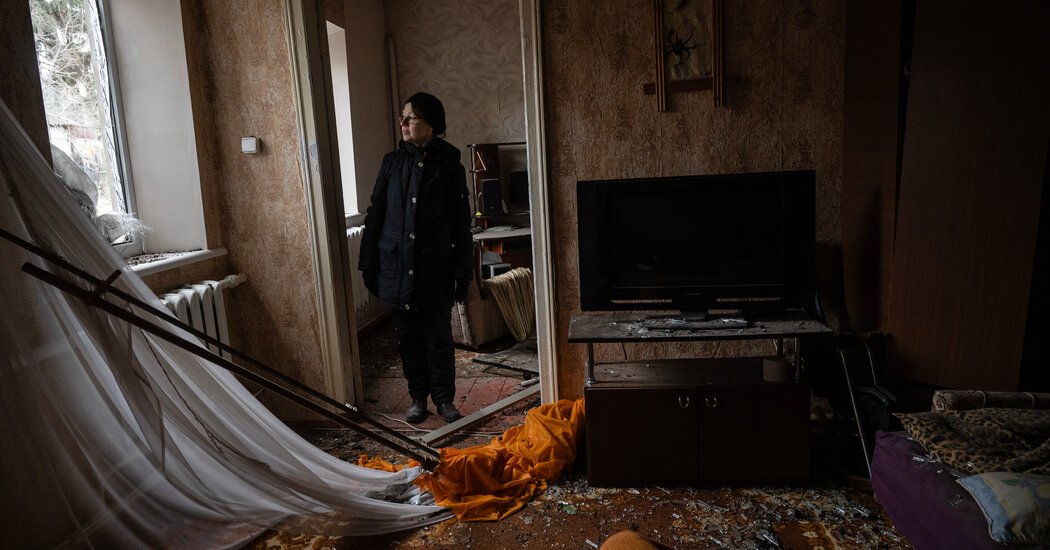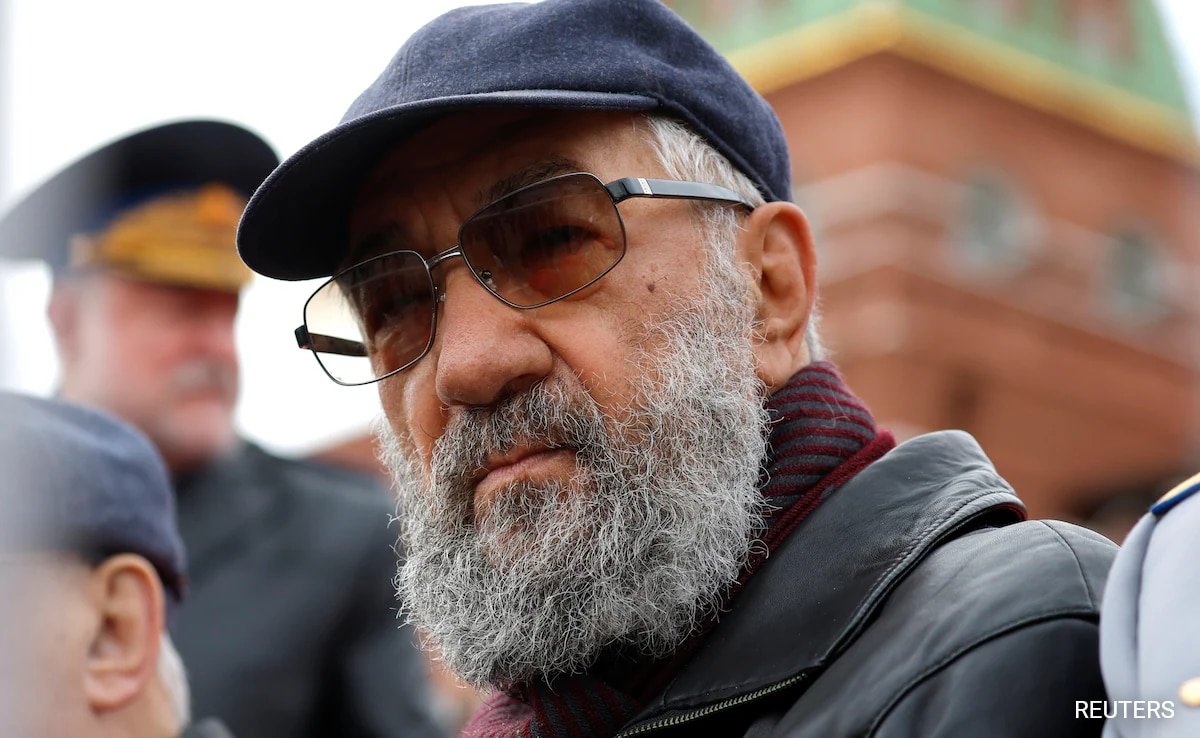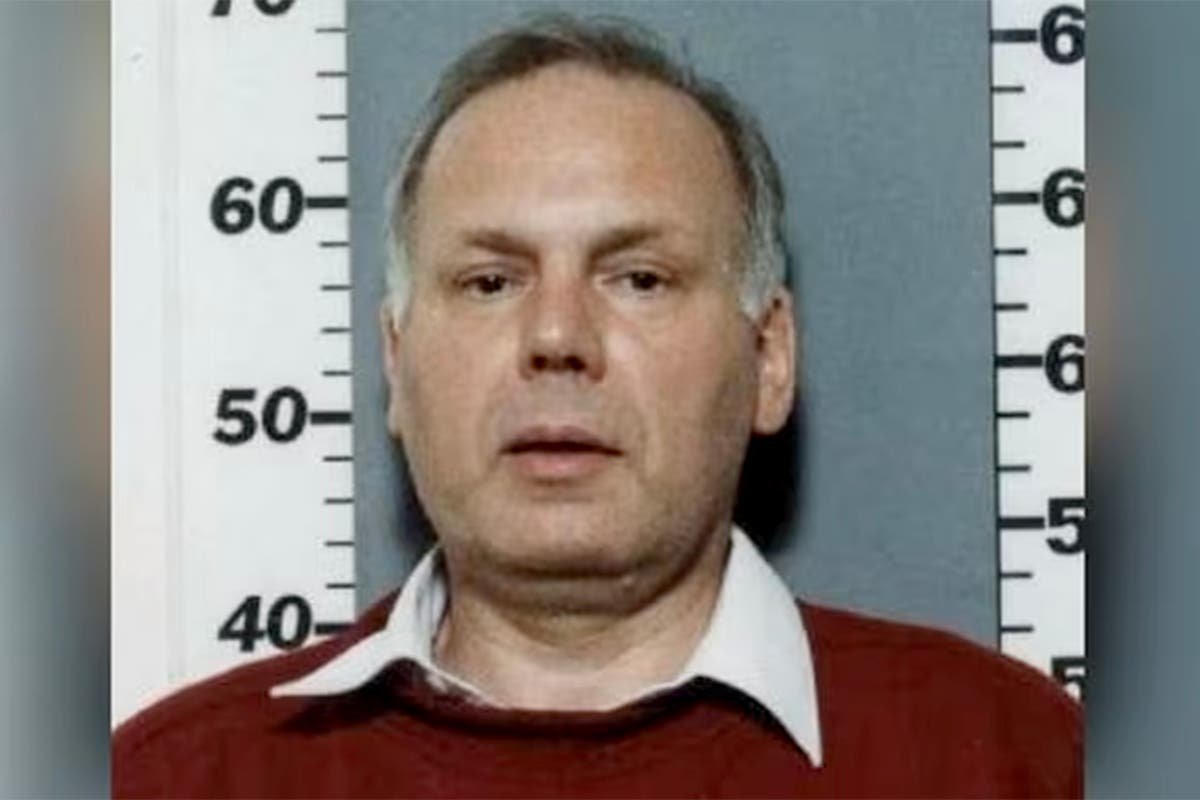When Russian missiles struck the Ukrainian city of Kharkiv a couple of weeks ago, schoolchildren and their teachers installed in newly built underground classrooms did not hear a thing.
Down in the bowels of Kharkiv’s cavernous, Soviet-era subway stations, the city administration has built a line of brightly decorated classrooms, where 6- and 7-year-olds are attending primary school for the first time in their lives in this war-stricken city.
“The children were fine,” said Lyudmyla Demchenko, 47, one of the teachers. “You cannot hear the sirens down here.”
Ten years after the conflict with Russian-backed separatists broke out and two years into Moscow’s full-scale invasion, Ukrainians are weary but ever determined to repel the invaders. The war has touched every family — with thousands of civilians dead, close to 200,000 soldiers killed and wounded, and nearly 10 million refugees and displaced in a country of nearly 45 million people. Yet, despite the death, destruction and deprivations, a majority of Ukrainians remain optimistic about the future, and even describe themselves as happy, according to independent polls.

Kharkiv is a good example. It lies only 25 miles from the border with Russia and has suffered a heavy share of Russian artillery, drone and missile attacks. Most families fled at the beginning of the war or lived for months underground in the subway, as Russian troops came close to seizing the city. But the Ukrainian defenses held, families returned and the city came back to life.
In December, when Russian missile attacks escalated again, most people stayed put. Kyryl Rohachov, 22, even opened a cocktail bar on one of Kharkiv’s main avenues with a childhood friend who now manages the business.
Days before the opening in January, missile strikes shattered buildings and windows along the street. “It’s not the best time,” Mr. Rohachov admitted in a video call from Switzerland, where he works in a restaurant and cares for his orphaned brother and his own family. “But I want to bring something new to my lovely Kharkiv.”
In a recent opinion poll conducted by the Kyiv International Institute of Sociology, the overwhelming majority of respondents, nearly 90 percent, said they still believed in Ukraine’s victory, as long as Western aid continued.
More than 60 percent of respondents considered themselves happy, even while the majority said they had lost income and suffered from physical and mental health problems. A similar number said they had lost at least one relative or friend, said Anton Hrushetsky, the director of the institute.
People seriously pared back their lives and expectations, he said, adding, “That is keeping these happiness levels higher.”
Nevertheless, there are signs of a small but growing pessimism, he said. In December, 19 percent of respondents said they were ready to make concessions to Russia to bring an end to the war, an increase from 10 percent in May.
That pessimism was directly tied to waning Western support for Ukraine, Mr. Hrushetsky said.
“When they see this insufficient support and these political problems in the United States, in the Western European states, they are becoming more depressed and more pessimistic,” he said.
It is already being felt in the army ranks, where commanders complain of a shortage of ammunition and a lack of manpower as fewer men are enlisting. Soldiers say they have noticed that when they enter a cafe or restaurant in uniform, people turn away or clear the room, scared that the soldiers might be recruitment officers serving draft papers.
The pain and loss felt by everyone are evident at the constant funerals around the country and in the expanding military graveyards. A crowd of 300 turned out on a recent day in the town of Kamianske to say farewell to a fallen soldier. Everyone, old and young, knelt on the frozen ground as his coffin passed on its way to the cemetery.
The suffering caused by Russia’s invasion has hardened attitudes in Kharkiv. Part of the province lived under a brutal seven-month occupation in 2022, and the bombardment continues. This month, two families, three children among them, were burned alive in their homes when missiles struck a fuel depot, setting an adjoining line of houses ablaze.
“Each missile they shoot at us just fuels our fury,” said the chief police investigator for Kharkiv Province., Serhii Bolvinov, who has opened thousands of criminal cases against Russia for rape, torture and arbitrary killings, as well as deaths and loss of property from bombardment.
“Each of us has hate for Russians at a maximum level,” he said. “And it’s hard to understand when it will start declining. Because for now, it’s only growing.”
Anatolii Kozyr, 72, played a video on his cellphone of his farm and home, 80 miles east of Kharkiv, which were destroyed by Russian strikes a month ago.
“All my life I was gathering and organizing, and in one moment everything was gone,” he said. He lost 3,000 tons of grain, 1,000 pigs, a workshop and farm machinery, he said. “Nothing was left.”
The Russians now stand less than two miles from his village, and he sees little hope of being able to return. “They are advancing,” he said.
Dr. Maryna Prokopenko, 28, a surgeon at Kharkiv Regional Hospital, calms her nerves by working and, in her spare time, boxing to vent her anger.
She fled to Poland at the beginning of the war but, missing home, returned to Kharkiv after a month. An ear, nose and throat specialist, she spends most of her time patching up wounded civilians.
“We try to work a lot because it really is a distraction,” she said. “I have work, and I am calm and strong.”
Like many Ukrainians, she yearns for the war to stop. “When I see all these wounds and destroyed bodies, and so many physical disabilities, it is awful,” she said. “I want this war to end.”
But when asked about giving up territory in a peace treaty, or ceding Kharkiv to Russian control, she rejected the prospect outright.
Two neighbors in their 80s, Raisa and Svitlana, strolling through the snow in Kharkiv, were among the pessimists.
They criticized the leaders who brought war upon them. “I hope they lose their ambition and negotiate,” Svitlana said, adding that President Volodymyr Zelensky would have to cede ground. “He cannot win.” The women gave only their first names to avoid recriminations.
Pro-democracy changes introduced several years ago that brought more accountability to local government have helped to bolster Ukraine’s resilience, some analysts have said. Ukraine also has plenty of natural leaders in addition to its military commanders and politicians.
One of Kharkiv’s most beloved characters is Serhii Zhadan, a 50-year-old punk rocker, poet, novelist and lyricist who tours the country entertaining fans and supporting soldiers on the front lines. He played a raucous set in Kharkiv last Sunday, paying tribute at one point to a group of leather-clad bikers who have been fixing and delivering motorbikes for the troops.
Mr. Zhadan has written searing verse over the 10 years of war, including a poignant poem on the loss of a childhood friend from his home province of Luhansk, in eastern Ukraine. And he has immortalized in song Kharkiv’s children, who lived for weeks in the subway at the beginning of the war.
Angry and cheerful kids of Kharkiv basements
Kids living in the depths of the subway.
Oleksandr Chubko contributed reporting from Kyiv and Kharkiv, Ukraine, and Denys Tsyba from Kharkiv.










